22 start with B start with B

Listing every right that a constitution should protect is hard. American constitution drafters often list a few famous rights such as freedom of speech, protection against unreasonable searches and seizures, and free exercise of religion, plus a handful of others. However, we do not need to enumerate every liberty because there is another way to protect them: an "etcetera clause." It states that there are other rights beyond those specifically listed: "The enumeration in the Constitution, of certain rights, shall not be construed to deny or disparage others retained by the people." Yet scholars are divided on whether the Ninth Amendment itself actually does protect unenumerated rights, and the Supreme Court has almost entirely ignored it. Regardless of what the Ninth Amendment means, two-thirds of state constitutions have equivalent provisions, or "Baby Ninth Amendments," worded similarly to the Ninth Amendment.
This book is the story of how the "Baby Ninths" came to be and what they mean. Unlike the controversy surrounding the Ninth Amendment, the meaning of the Baby Ninths is straightforward: they protect individual rights that are not otherwise enumerated. They are an "etcetera, etcetera" at the end of a bill of rights. This book argues that state judges should do their duty and live up to their own constitutions to protect the rights "retained by the people" that these "etcetera clauses" are designed to guarantee. The fact that Americans have adopted these provisions so many times in so many states demonstrates that unenumerated rights are not only protected by state constitutions, but that they are popular. Unenumerated rights are not a weird exception to American constitutional law. They are at the center of it. We should start treating constitutions accordingly.

Listing every right that a constitution should protect is hard. American constitution drafters often list a few famous rights such as freedom of speech, protection against unreasonable searches and seizures, and free exercise of religion, plus a handful of others. However, we do not need to enumerate every liberty because there is another way to protect them: an "etcetera clause." It states that there are other rights beyond those specifically listed: "The enumeration in the Constitution, of certain rights, shall not be construed to deny or disparage others retained by the people." Yet scholars are divided on whether the Ninth Amendment itself actually does protect unenumerated rights, and the Supreme Court has almost entirely ignored it. Regardless of what the Ninth Amendment means, two-thirds of state constitutions have equivalent provisions, or "Baby Ninth Amendments," worded similarly to the Ninth Amendment.
This book is the story of how the "Baby Ninths" came to be and what they mean. Unlike the controversy surrounding the Ninth Amendment, the meaning of the Baby Ninths is straightforward: they protect individual rights that are not otherwise enumerated. They are an "etcetera, etcetera" at the end of a bill of rights. This book argues that state judges should do their duty and live up to their own constitutions to protect the rights "retained by the people" that these "etcetera clauses" are designed to guarantee. The fact that Americans have adopted these provisions so many times in so many states demonstrates that unenumerated rights are not only protected by state constitutions, but that they are popular. Unenumerated rights are not a weird exception to American constitutional law. They are at the center of it. We should start treating constitutions accordingly.


The editors base their data on personal experience; interviews with governors, former governors, and staff; on -site visits; and responses to a series of nineteen surveys of governors and their staff conducted between 1976 and 1981. The research was undertaken by the Center for Policy Research of the National Governors' Association.

Guenée chooses as his frame the momentous period from the height of Saint Louis's reign in the mid-thirteenth century to the beginning of the Italian wars two hundred years later. During this time of schism in the church, of war between nascent states, and of treachery among princes, Bernard Gui (1261-1331), Gilles Le Muisit (1272-1353), Pierre D'Ailly (1351-1420), and Thomas Basin (1412-1490) all rose from modest circumstances to the dignity of office. Guenée shows us how these prelates used their talent, ambition, patrons, zeal, and experience to juggle the competing demands of obedience to church and state; to overcome competition from an upcoming new generation; and to cope with plague, war, and violence. Free of jargon yet steeped in learning, Between Church and State reveals the career patterns and politics of an era while forging a new model for points of departure in historical scholarship.
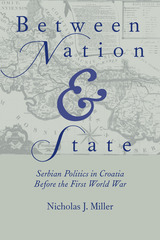
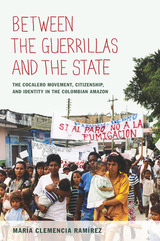

This interdisciplinarily collection investigates women in diverse locales—ranging from Quebec to Beirut. The contributors consider such subjects as Yucatan feminism, Islamic fundamentalisms, Canadian gender formations, historic Chicana/o struggles, and Israeli/Palestinian conflicts. Divided into three parts, the collection first examines constructions of nationalism and communities whose practices complicate these constructions. The second section discusses regulations of particular nation-states and how they affect the lives of women, while the third presents studies of transnational identity formation, in which contributors critique ideas such as “multicultural nationalism” and “global feminism.” Arguing provocatively that such movements and concepts inadequately represent women’s interests, contributors examine how such beliefs and their attendant organizations may actually bolster the very formations they ought to subvert.
In its demonstration of the critical possibilities of feminist alliances across discrepant and distinct material conditions, Between Woman and Nation will make a unique contribution to women’s studies, feminist theory, studies of globalization and transnationalism, ethnic studies, and cultural studies.

In the past decade remarkable changes have taken place in the relations between big business and government in Western Europe. Large corporations have always been intimately linked to their governments—sometimes carrying out national policies, frequently influencing those policies. Recently, however, more and more national enterprises have become multinational enterprises whose aims diverge increasingly from those of the states in which they originated. In addition, the growth of the European Economic Community has outdated customary ways of doing business for large corporations while creating new opportunities for them.
A number of significant insights and interpretations result from this timely book. The interests of the big firms of Western Europe are becoming increasingly worldwide and less concerned with Europe; inter-European collaboration among them has been largely disappointing in furthering European goals; emphasis on creativity and innovation in big business has given way to the diversion of financial resources to declining industries; and lip service to promoting transnational collaboration notwithstanding, governments have preferred to back national standard bearers in key industries. No less important, the political role of large economic groups has been enhanced and that of parliament weakened or altogether circumvented.
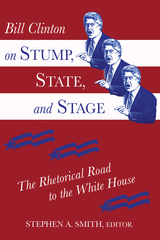
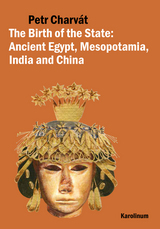

When the venerable historian Norman D. Brown published Hood, Bonnet, and Little Brown Jug in 1984, he earned national acclaim for revealing the audacious tactics at play in Texas politics during the Roaring Twenties, detailing the effects of the Ku Klux Klan, newly enfranchised women, and Prohibition. Shortly before his death in 2015, Brown completed Biscuits, the Dole, and Nodding Donkeys, which picks up just as the Democratic Party was poised for a bruising fight in the 1930 primary. Charting the governorships of Dan Moody, Ross Sterling, Miriam “Ma” Ferguson in her second term, and James V. Allred, this engrossing sequel takes its title from the notion that Texas politicians should give voters what they want (“When you cease to deliver the biscuits they will not be for you any longer,” said Jim “Pa” Ferguson) while remaining wary of federal assistance (the dole) in a state where the economy is fueled by oil pump jacks (nodding donkeys).
Taking readers to an era when a self-serving group of Texas politicians operated in a system that was closed to anyone outside the state’s white, wealthy echelons, Brown unearths a riveting, little-known history whose impact continues to ripple at the capitol.

Here, James T. Sparrow, William J. Novak, and Stephen W. Sawyer assemble definitional essays that search for explanations to account for the extraordinary growth of US power without resorting to exceptionalist narratives. Turning away from abstract, metaphysical questions about what the state is, or schematic models of how it must work, these essays focus instead on the more pragmatic, historical question of what it does. By historicizing the construction of the boundaries dividing America and the world, civil society and the state, they are able to explain the dynamism and flexibility of a government whose powers appear so natural as to be given, invisible, inevitable, and exceptional.

Straddling the boundaries of politics and history, this discerning book allows the reader to dig through the rubble of Lebanon's wars and learn exactly what has befallen it. With its remarkable open society, its plural political system, its well-educated and sophisticated peoples, and its tolerant confessional outlook, Lebanon is only now recovering the independence it once had, albeit in the face of Syria. In view of recent Lebanese history, can an open and democratic state be recaptured by a people entangled in a largely authoritarian Arab state system?
Farid el Khazen's arresting book shows how Lebanon was led toward its fate by its neighbors, yet ultimately undid itself. The Palestine Liberation Organization's presence was of central importance to the breakdown of the state, while the porousness of the democratic system could not contain the problems and violence. The breakdown was less a civil war in the conventional sense than a series of little wars with outside interference.

Travel in Tokugawa Japan was officially controlled by bakufu and domainal authorities via an elaborate system of barriers, or sekisho, and travel permits; commoners, however, found ways to circumvent these barriers, frequently ignoring the laws designed to control their mobility. In this study, Constantine Vaporis challenges the notion that this system of travel regulations prevented widespread travel, maintaining instead that a “culture of movement” in Japan developed in the Tokugawa era.
Using a combination of governmental documentation and travel literature, diaries, and wood-block prints, Vaporis examines the development of travel as recreation; he discusses the impact of pilgrimage and the institutionalization of alms-giving on the freedom of movement commoners enjoyed. By the end of the Tokugawa era, the popular nature of travel and a sophisticated system of roads were well established. Vaporis explores the reluctance of the bakufu to enforce its travel laws, and in doing so, beautifully evokes the character of the journey through Tokugawa Japan.
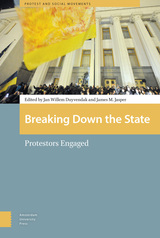
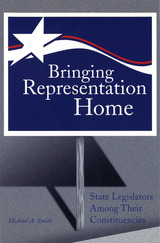
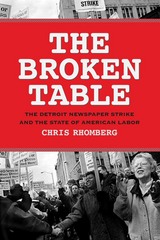
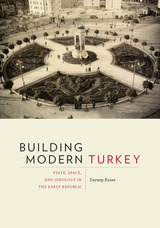

Long isolated by rigid military rule, Burma, or Myanmar, is one of the least known, significantly sized states in the world. Possessed of a rich cultural history yet facing a range of challenges to stability and growth, it has struck the imaginations of those concerned not only with geopolitical or trade affairs but also with poverty, health, and human rights. David I. Steinberg sheds new light on this reclusive state by exploring issues of authority and legitimacy in its politics, economics, social structure, and culture since the popular uprising and military coup of 1988.
Exploring the origins of that year’s tumultuous events, Steinberg analyzes a generation of preceding military governments and their attempts to address the nation’s problems. He focuses on the role of the military, the effects of Burma’s geopolitical placement, the plight of the poor, the destruction of civil society, and rising ethnic tensions. While taking into account the importance of foreign observers as counterpoints to official views, suppliers of economic aid, and advocates of reform, Steinberg contends that ultimately, the solutions to Myanmar’s varied problems lie with the Burmese themselves and the policies of their government.
The paperback edition includes a postcript that reveals the most current and critical issues facing Burma since the publication of the original hardcover in March 2001. Steinberg brings readers up to date on the recent release of political prisoners, economic and military conditions, United Nations actions, and the complex, ever-changing relationship between Thailand and Myanmar.
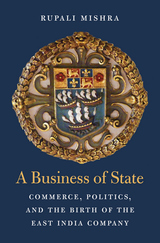
At the height of its power around 1800, the English East India Company controlled half of the world’s trade and deployed a vast network of political influencers at home and abroad. Yet the story of the Company’s beginnings in the early seventeenth century has remained largely untold. Rupali Mishra’s account of the East India Company’s formative years sheds new light on one of the most powerful corporations in the history of the world.
From its birth in 1600, the East India Company lay at the heart of English political and economic life. The Company’s fortunes were determined by the leading figures of the Stuart era, from the monarch and his privy counselors to an extended cast of eminent courtiers and powerful merchants. Drawing on a host of overlooked and underutilized sources, Mishra reconstructs the inner life of the Company, laying bare the era’s fierce struggles to define the difference between public and private interests and the use and abuse of power. Unlike traditional accounts, which portray the Company as a private entity that came to assume the powers of a state, Mishra’s history makes clear that, from its inception, the East India Company was embedded within—and inseparable from—the state.
A Business of State illuminates how the East India Company quickly came to inhabit such a unique role in England’s commercial and political ambitions. It also offers critical insights into the rise of the early modern English state and the expansion and development of its nascent empire.
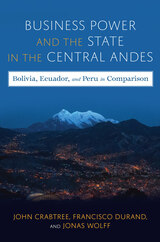
This coauthored monograph examines how business groups have interacted with state authorities in the three central Andean countries from the mid-twentieth century through the early twenty-first. This time span covers three distinct economic regimes: the period of state-led import substitutive industrialization from the 1950s through the 1970s, the neoliberalism of the 1980s and 1990s, and the post-neoliberal period since the earlier 2000s. These three countries share many similarities but also have important differences that reveal how power is manifested. Peru has had an almost unbroken hegemony of business elites who leverage their power over areas of state activity that affect them. Bolivia, by contrast, shows how strong social movements have challenged business dominance at crucial periods, reflecting a weaker elite class that is less able to exercise influence over decision-making. Ecuador falls in between these two, with business elites being more fragmented than in Peru and social movements being weaker than in Bolivia. The authors analyze the viability of these different regimes and economic models, why they change in specific circumstances, and how they affect the state and its citizen
READERS
Browse our collection.
PUBLISHERS
See BiblioVault's publisher services.
STUDENT SERVICES
Files for college accessibility offices.
UChicago Accessibility Resources
home | accessibility | search | about | contact us
BiblioVault ® 2001 - 2024
The University of Chicago Press









